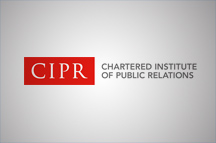"It is too difficult to find out who is lobbying government, information is often released too late, descriptions of the content of government meetings are ambiguous and lack necessary detail, transparency data is scattered, disparate, and not easily cross-referenced, and information in the public interest is often excluded from data releases completely."
This is the view of the Committee on Standards in Public Life (CSPL) in a new report - 'Standards Matter 2, Committee Findings' - writes the CIPR, which finds "the current system of transparency around lobbying is not fit for purpose". The report argues the government should amend regulations on the employment of ministers, civil servants, and special advisers after they leave public office, with the powers to issue longer bans than currently exist on those moving into lobbying positions.
It also addresses concerns around transparency in lobbying and calls for reporting with "a sufficient level of detail" to be provided on all lobbying meetings with external organisations on any policy matters discussed.
Rachael Clamp, Chair of CIPR Public Affairs, commented: "The review could not be clearer; rules around lobbying are not fit for purpose and, despite improvements made over the last 25 years, significant changes are required to meet any kind of satisfactory level of transparency. This review launched last year and, in light of the Greensill affair and other high-profile questions around standards in public life, its recommendations should now be urgently considered."
"The CIPR has long been calling for rules around lobbying to be amended and in particular for there to be a requirement for greater transparency of lobbying activity through the lobbying register, a view we have shared with the CSPL for this review and their forthcoming report."
"This review is timely and welcome and an important step forward to improving the standards surrounding the vital work of lobbying in this country."














